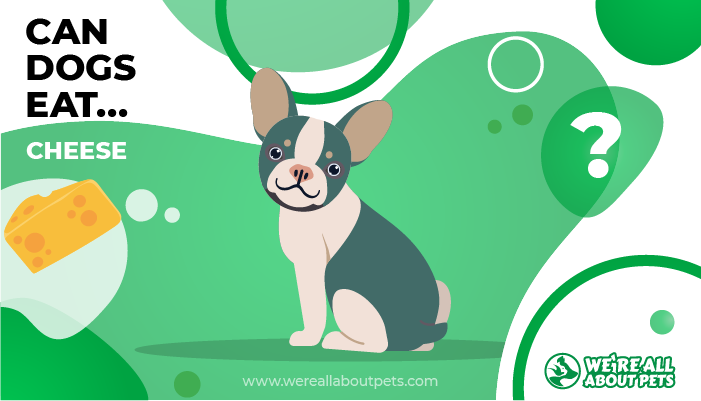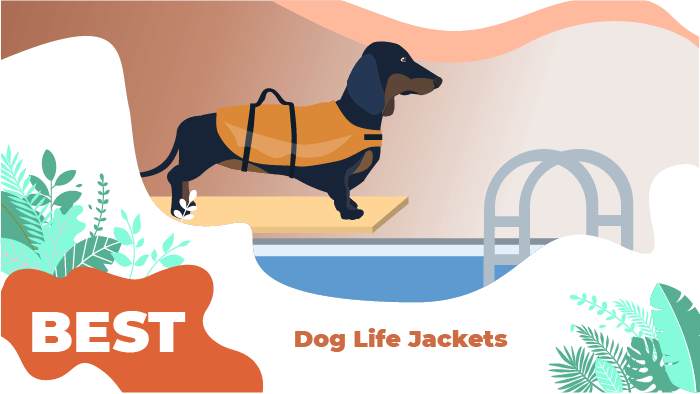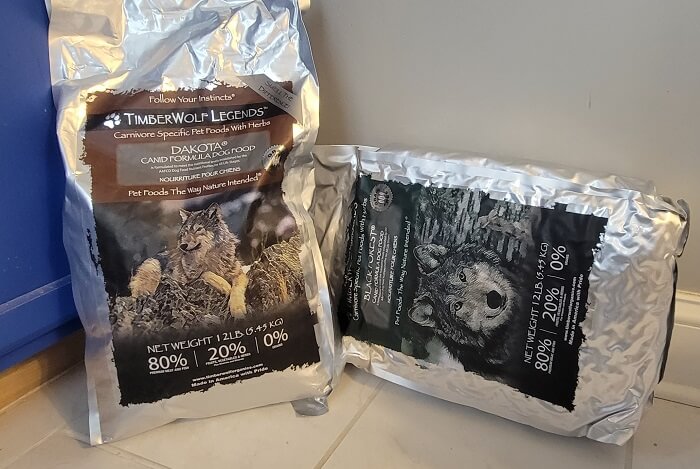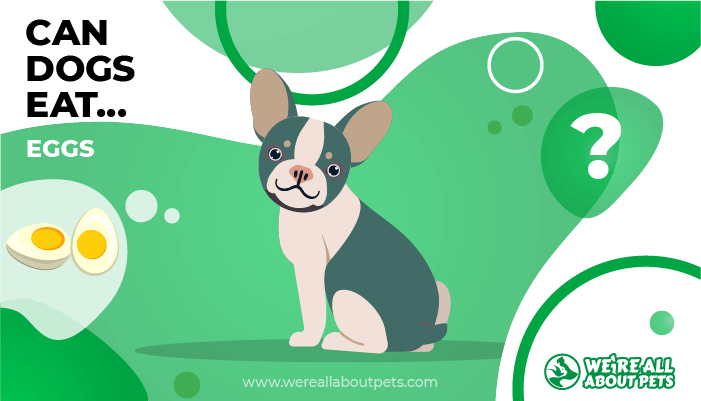Can Dogs Eat Cheese?
This page contains affiliate links. We may earn money or products from the companies mentioned in this post through our independently chosen links, which earn us a commission. Learn More

Cheddar, Camembert, Gouda, brie, Roquefort, mozzarella, Swiss … and the list goes on. There are an almost infinite number of cheeses.
Sometimes it seems like every farmer with a herd of dairy cows produces their own unique kind of cheese. Many people love it – and so do many dogs. But can dogs eat cheese? Or, put another way, should dogs eat cheese?
We have the answers for you about giving your dog cheese in our short guide.
Cheese Nutrition Stats
The nutrients in cheese vary, depending on the kind of cheese. The information provided here is for Cheddar cheese, one of the most common cheeses bought.
Figures are based on 1 cup of diced cheese (132 grams).
- Calories: 532 (27% daily value)
- Protein: 32.9 g (66% daily value)
- Carbohydrates: 1.7 g (1% daily value)
- Fat: 43.7g (67% daily value)
- Fiber: 0.0 g (0% daily value)
- Vitamin A: 1323 IU (26% daily value)
- Vitamin D: 15.8 IU (4% daily value)
- Vitamin E (Alpha Tocopherol): 0.4 mg (2% daily value)
- Vitamin K: 3.7mcg (5% daily value)
- Manganese: 0.0 mg (1% daily value)
- Vitamin B6: 0.1 mg (5% daily value)
- Phosphorus: 676 mg (68% daily value)
- Copper: 0.0 mg (2% daily value)
- Sodium: 820 mg (34% daily value)
- Zinc: 4.1 mg (27% daily value)
- Selenium: 18.3 mcg (26% daily value)
- Thiamin: 0.0% mg (2% daily value)
- Folate: 23.8 mcg (6% daily value)
- Sugars: 0.7 g
- Potassium: 129 mg (4% daily value)
- Calcium: 952 mg (95% daily value)
- Magnesium: 37mg (9% daily value)
- Niacin: 0.1mg (1% daily value)
- Pantothenic acid: 0.5% mg (5% daily value)
- Riboflavin: 0.5 mg (29% daily value)
- Iron: 0.9 mg (5% daily value)
- Fluoride: 46.1 mcg
- Choline: 21.8 mg
- Cholesterol: 139 mg (46% daily value)
Cheddar cheese contains 2 percent carbohydrates, 72 percent fats, and 26 percent protein.
Cheese Nutritional Facts At A Glance

Cheese is considered to be a “whole food.” Whole foods are largely unprocessed and unrefined as little as possible before they are eaten. Other whole foods include grains, tubers, legumes, fruits, and vegetables. Whole foods are usually considered to be healthier than foods that are more processed and refined. Cheese, however, can be a controversial food.
Cheese is a great source of protein, calcium, and fat, and it contains lots of vitamin A, B-12 and other B-complex vitamins, zinc, phosphorus, riboflavin, and other vitamins and minerals. Some high fat cheeses are also a source of conjugated linoleic acid (CLA). CLA is thought to help prevent obesity, inflammation, and heart disease.
There are several reasons why cheese can be controversial. First, with so many varieties and types of cheese, cheese nutrition, such as calories, fat, and sodium, can vary tremendously.
For example, an ounce of Cheddar cheese has 120 calories compared to an ounce of mozzarella with 85 calories; and an ounce of feta which has 60 calories. Feta contains 360 mg of sodium per ounce compared to mozzarella with 138 mg of sodium per ounce. High amounts of sodium can present problems for people with high blood pressure.
In general, hard cheeses take longer to age and usually contain more salt. If you enjoy cheese but you’re concerned about calories, look for lower calorie versions of cheeses.
Second, cheese can be problematic for people who are lactose-intolerant. Lactose is a sugar found in dairy products. Some humans have the enzyme to digest lactose but some people do not. For people who lack this enzyme, eating foods that are high in lactose can lead to digestive problems such as an upset stomach, gas and bloating.
Not all cheeses and other dairy products are high in lactose. Some cheeses are relatively low in lactose such as parmesan, Cheddar, and Swiss. Cheddar cheese only contains a small trace of lactose.
Other reasons why some people elect to avoid cheeses include its lack of fiber. Eating a lot of pasteurized dairy products can lead to constipation in some cases. Cheese is also high in fat which can be a concern if you are trying to limit your intake of saturated fat.
Can Dogs Eat Cheese?
Ask your dog and he will tell you that yes, absolutely, he can eat cheese! And lots of it! Actually, dogs can eat cheese – some cheese, in moderate amounts.
Some of the same nutritional concerns that affect humans about cheese do apply to dogs, however, so you shouldn’t allow your dog to feast on too much cheese but it does make a great treat in moderation.
Read more about other foods dogs can and can’t eat.
Is Cheese Good For Dogs?
Most dogs love cheese and it can be good for them, in small amounts. Many people use small pieces of cheese as a reward when training puppies and dogs. Or they will share a little cheese with their dog from their pizza or something they’re making to eat in the kitchen. Some people will also hide a pill in a piece of cheese for dogs that don’t like to take medication. Eating cheese this way should not be a problem for most dogs.
Some dogs (not all) are lactose-intolerant. Just as with humans, some dogs (again, not all) can lack the enzyme necessary to break down the sugar lactose that is present in dairy foods such as cheese. With these dogs, if they eat cheese, milk, or other dairy foods that contain lots of lactose, you can expect some digestive problems such as gas and diarrhea.
This is especially true if they eat these foods in large quantities. Most dogs are able to eat a small bite of cheese without having a gastric explosion though it’s always possible that you could have a dog with the world’s most sensitive digestive tract.
If you are concerned about lactose-intolerance in your dog, Cheddar, parmesan, and Swiss are the best choices with the lowest levels of lactose. They have much less lactose than some of the creamier cheeses. If you’re not sure if your dog has a problem with lactose, be sure to monitor your dog after he eats a little cheese to see if he has any digestive issues.
Another possible problem with giving your dog cheese is the fact that most cheeses are high in calories and fat. It doesn’t take much cheese, given on a regular basis, to start to put weight on your dog. This can quickly lead to your dog becoming overweight or obese. Weight gain and obesity can be very unhealthy for your dog.
Feeding your dog high fat cheese can also result in pancreatitis. Pancreatitis is a serious and sometimes fatal illness in dogs. Eating high fat meals can be one of the conditions that leads to pancreatitis.
You can buy low or reduced-fat cheese for your dog to help avoid some of these problems with fat and calories.
Some cheeses also contain herbs and other ingredients that can be harmful to dogs. If you plan to give your dog cheese, make sure that it doesn’t contain ingredients such as garlic or onion.
Giving your dog cheese as a dog treat or reward should not pose a problem as long as you don’t overdo it.
How Much Cheese Can Dogs Eat?

Cheese can vary in calories but most cheese contains about 100 calories per one ounce cube. It’s a very calorie-dense food.
The rule of thumb for treats and snacks is that they should not make up more than 10 percent of your dog’s daily calories. For example, if your dog weighs 50 pounds, he would need to eat approximately 1300 calories per day (depending on his age, whether he was intact or neutered, his activity level, and so on – all of these factors could make a difference). At 1300 calories, you could deduct 130 calories for treats.
In this case, you could give your 50-pound dog approximately 13 little cubes as treats or rewards. (Or make the cubes smaller to stretch them out.) This will vary, depending on your dog’s weight and daily calories, of course, but the rule for snacks and 10 percent of his calories remains the same.
How Often Can Dogs Eat Cheese?
It’s best if cheese is an occasional treat. Dogs love the taste of the high fat and sodium but it’s better not to let your dog eat too much cheese too often. You could give your dog cheese 3-4 times per week. Most dogs love cheese and they can become addicted to it if you don’t carefully monitor how much you give them and how frequently.
The Correct Diet Is Important
Dogs need to eat the correct diet for good health. All dogs need good quality protein and fat appropriate for their age, lifestyle, and health condition in order to thrive.
Most healthy dogs need the following things in their diet:
- Good Sources of Protein- Meat, fish, poultry, and eggs are all good sources of animal protein. Animal protein is generally easier for dogs to digest. The more accurately the protein is identified on the label, the better.
- Good Sources of Fat- Fat provides essential fatty acids (EFA) and helps distribute the fat soluble vitamins A, D, E, and K so your dog can absorb them easily.
- Named Ingredients- Named ingredients are usually better than generic ingredients. The more specific, the better, so you know precisely what your dog is eating.
- Low to Moderate Carbohydrates- Most experts recommend diets that contain low to moderate amounts of carbohydrates. Carbohydrates are not “bad” for dogs but they should not be used as a substitute for protein. Many carbs do double duty as dietary fiber and probiotics.
- Avoid Artificial Preservatives, Colors, and Sweeteners- Artificial preservatives and colors/dyes have been linked to some health problems in humans and animals. You should try to avoid these ingredients in dog foods.
- AAFCO- AAFCO is the Association of American Feed Control Officials. AAFCO sets voluntary standards for pet food labeling. Look for foods that have these minimum standards.
- Fresh Water- All dogs need access to fresh water unless they are ill or have some other reason to be temporarily kept away from water. For example, if you are house training your puppy, you can safely put away water overnight.
If your dog has health problems of any kind, please see a veterinarian for dietary advice. Regular diets may need to be adjusted. Your dog may not be able to eat some fruits and vegetables so ask your vet.
What Are Other Healthy Alternatives To Cheese In A Dog’s Diet?

Cheese makes a good reward or treat for your dog but there are many other healthy foods you can give your dog in small amounts.
You should consider these human foods as occasional treats. Check with your veterinarian if your dog has any health issues and you are concerned about giving any of these foods.
Remember that not all parts of a fruit or vegetable are safe for dogs in some cases.
- Apples
- Asparagus
- Avocados
- Bananas
- Bell pepper
- Broccoli
- Brussels sprouts
- Carrots
- Cauliflower
- Celery
- Cucumbers
- Green beans
- Mangos
- Oranges
- Parsnip
- Pears
- Pineapple
- Pumpkin
- Strawberries
- Summer squash
- Sweet potato
- Tomatoes
- Watermelon
- Zucchini
How Do You Give Your Dog Cheese?
Most people simply cut cheese into small, bite-size pieces. They can hand-feed the pieces to their dog. Hard cheese, such as Cheddar, is especially good for this purpose if you are using the pieces for training rewards. They fit into a small pouch or “bait bag” that you can attach to your belt while training without making a mess.
You can also add small pieces of cheese to your dog’s dinner. Some people will grate cheese to top their dog’s food and make it more enticing.
Cheese is often used to help increase appetite for old dogs and dogs recovering from illness. Powdered cheese sprinkled over a meal can be another good way to increase appetite in dogs that don’t want to eat.
There are some dairy products that you can give your dogs that are very low in lactose if cheese is a problem. Yogurt, kefir, cottage cheese, and ricotta all contain very low amounts of lactose. You can easily add these foods to your dog’s diet to get some of the benefits of cheese without the risks.
Conclusion
Cheese is a terrific whole food, high in protein, calcium, and many vitamins and minerals. Some people and dogs can have problems eating cheese because of lactose-intolerance or concerns about its high fat content.
Fortunately, there are many ways to work around these problems so your dog can enjoy cheese.








